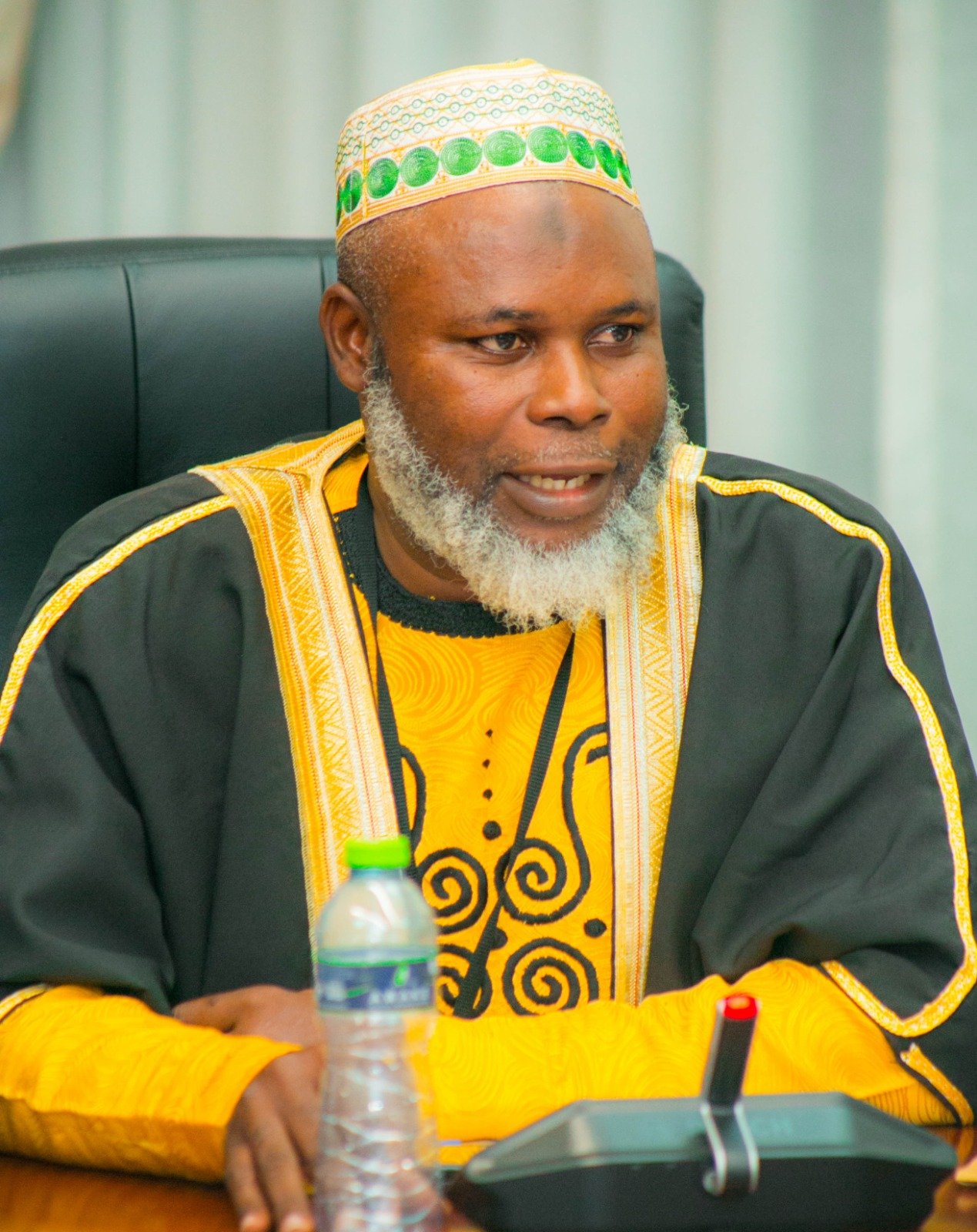Fruitful Living
Overview of the Holy Spirit and His work
If you love me, you will obey what I command. And I will ask the Father, and He will give you another Counsellor to be with you forever – the Spirit of truth. The world cannot accept Him because it neither sees Him nor knows Him. But you know Him, for He lives with you and will be in you – John 14:15-17
INTRODUCTION
The Holy Spirit is absolutely central to our coming to faith in Jesus Christ and sustaining this faith. Indeed, He is central to all that pertains to our relationship with God.
We, therefore need to really know all about the Holy Spirit as He is revealed in the Bible. Let us in humility invite the Holy Spirit to teach us about who He is and what He does.
Key Scriptures
John 14:15-17 & 26; 6:7-15; & 2 Cor. 3:12-18
Today, we will look at the Overview of the Holy Spirit and His Work. God’s plan for every Christian is that we be transformed in our character to become like Jesus as we read in Romans 8:29 – For God knew His people in advance, and He chose them to become like His Son, so that His Son would be the firstborn, with many brothers and sisters.
This is reiterated in 2 Corinthians 3:18 where we read in the latter part of the verse. … And as the Spirit of the Lord works within us we become more and more like Him and reflect His glory even more.
Please go back to this 2 Corinthians 3 passage later and read from verses 12 – 18. As believers it is essential that we know the reality and power of the Holy Spirit, recognising His importance in God’s redemptive purpose.
It is the Holy Spirit who brings life right into the centre of the believer’s being and strength into our lives.
Indeed, without the Holy Spirit we would never be able to live in the power of God or know God’s strength in our daily lives. The full enjoyment and fulfilment in our existence as human beings depends on the presence of the Holy Spirit in our lives.
Let us now find out what Jesus, the Son of God who reveals the Father to us, has to say about the Holy Spirit in John 14:15-17; 26 and 16:7-15.
In this passage, Jesus links obedience directly to love. He recognises that real love to Him which is shown only in true obedience is not easy and so He assures us that He would ask the Father to give us a Counsellor, that is, One who will help us to live the Christian life by guiding us and advising us about the right things to do.
This Helper or Comforter or Counsellor, is the One who comes from God Himself. That means that God Himself will be our Helper, but this time He will come in the essence of His Spirit.
For example, when someone has a court case, an advocate is called in to assist him with the case. You can say that you and I definitely need such a Counsellor to stand alongside us and help us in the courtroom of God. We need the Holy Spirit to help us in time of trouble or need.
He is the One who lives in us and with us turning our inadequacies into strengths that enable us to cope with the struggles in the Christian life.
Indeed, Jesus has not left us as orphans without hope but has given us His Spirit to help us, guide us and enable us to live to please God.
For further inquiries please contact us on Tel Nos. 0243588467 or 0268130615
Email: saltnlightministries@gmail. com
Website: saltandlightministriesgh.org
By Dr. Joyce Aryee, the author
Fruitful Living
Institution of Marriage in Islam (Pt.3)

Regarding sexual intimacy, it is also prohibited for a wife to demand money or gifts before allowing her husband to engage in sexual relations. Islam views this as a form of exploitation and sin. A marital relationship must be based on mutual love, respect, and affection rather than material gain.
Prohibition of sexual intercourse during menstruation
Islam has clear guidelines regarding sexual relations during certain times, particularly when a woman is menstruating. The Qur’an prohibits sexual intercourse during menstruation, stating:
“And they ask you about menstruation. Say: ‘It is harm, so keep away from women during menstruation. And do not approach them until they are pure. And when they have purified themselves, then come to them from where Allah has ordained for you. Indeed, Allah loves those who are constantly repentant and loves those who purify themselves’” (Qur’an 2:222).
This verse emphasises the importance of refraining from sexual activity during menstruation due to physical and spiritual reasons. However, all other forms of affection and companionship are allowed, and husbands should continue to care for their wives during this time with love and respect.
Islamic law encourages cleanliness and personal hygiene, especially in matters related to physical intimacy. After the menstruation period ends, it is recommended that the wife perform ghusl (ritual purification) before resuming sexual relations with her husband.
Rights of Children on Parents
Islam emphasises the rights of children on their parents, as marriage is the foundation of family life. Parents are obligated to provide their children with proper care, education, and moral guidance. The Qur’an states: “O you who have believed, protect yourselves and your families from a Fire whose fuel is people and stones…” (Qur’an 66:6).
This highlights the parents’ responsibility to raise their children with a strong sense of morality and faith. Children have the right to a good name, religious upbringing, and education, and they must be treated with fairness and love.
In Ghana’s law, there is Children’s Right Act, Act 560 (1989) which states among other things,
• Section 4, Right to Name, Nationality and secure a Birth Certificate for the child
• Section 6(3) (a&b), protection from neglect, provide good guidance, care etc
• Section 8(1&2), Right to education and wellbeing (medical care, diet, clothing, shelter).
How Do Married Couples Resolve Their Differences in Islam?
Islam provides clear guidelines for resolving marital conflicts in a just and compassionate manner.
The Qur’an instructs that in the event of marital discord, both parties should seek reconciliation:
“If you fear dissension between the two, send an arbitrator from his people and an arbitrator from her people. If they both desire reconciliation, Allah will cause it between them” (Qur’an 4:35).
The goal is always to preserve the marriage and restore harmony. If reconciliation is not possible, Islam permits divorce as a last resort, but it is considered the most disliked permissible act in the eyes of Allah (SWT).
Rewards of Marriage in Islam
Marriage in Islam is not only a social institution but also an act of worship that brings great rewards. The Prophet Muhammad (PBUH) said: “When a man marries, he has fulfilled half of his religion, so let him fear Allah regarding the remaining half” (Bayhaqi, Shu’ab al-Iman).
Married couples are rewarded for fulfilling their marital responsibilities, showing kindness to each other, and raising righteous children who contribute positively to society.
Scholarly Thoughts About Marriage in Islam
Islamic scholars, such as Imam Al-Ghazali, have discussed marriage as a means of controlling desires and fulfilling one’s spiritual obligations. Modern scholars like Sheikh Yusuf Qaradawi also stress the importance of mutual respect and understanding in marriage, ensuring that both partners can grow spiritually and emotionally within the marriage.
Conclusion
In conclusion, marriage in Islam is a divinely ordained relationship based on mutual love, respect, and responsibility. By following the guidance of the Qur’an and Sunnah, and observing the legal frameworks in place, such as Ghana’s Mohammedan Ordinance, we can establish strong and harmonious marriages that contribute to the moral and spiritual development of society. May Allah (SWT) guide us to fulfill our marital responsibilities with sincerity and love.
The Writer is Kpone Katamanso Municipal Chief Imam, Democracy and Governance Law Student, UCC, Member of Ghana National Association of Certified Counsellors Certified by Ghana Psychology Council
References:
1.Qur’an, Surah Ar-Rum (30:21)
2.Qur’an, Surah An-Nisa (4:34, 4:4, 4:19, 4:35)
3.Qur’an, Surah Al-Baqarah (2:187, 2:221, 2:222, 2:223)
4.Qur’an, Surah At-Tahrim (66:6)
5.Ibn Majah, Hadith 1845, 1905
6.Tirmidhi, Hadith 1162, 1084
7.Bukhari, Hadith 5090
8.Children’s Right Act, Act 560 (1989)
9.Bayhaqi, Shu’ab al-Iman
10.Al-Ghazali, Ihya Ulum al-Din
11.Qaradawi, The Lawful and Prohibited in Islam
Fruitful Living
Adansi North DCE marks birthday on Farmers’ Day

It was a momentous day for the Adansi North District Chief Executive, Eric Kwaku Kusi, last Friday November 8, as the 40th National Farmers Day district level celebration held here at Adansi Adokwai coincidentally fell on his birthday.
On a low-key, Mr Kusi momentarily took to the floor, to exhibit his dancing skills responding to cheers of “Happy Birthday to you” from the audience, to which he also responded with a gesture of thanks and praises to God, as he stepped out to address the gathering.
He was joined on the dancing floor by the assembly members singing praises to God for the life of their indefatigable DCE.
In his address, Mr Kusi commended farmers in the Adansi North and the country as a whole “who tirelessly cultivate the land to feed all of us in our communities.”
He said the government realising the important role agriculture played in the economy and the challenges facing farmers due to the effects of climate change was rolling out initiatives and policies to support climate-resilient agriculture, including agriculture insurance programme for farmers.
In all 16 farmers were awarded various prizes for their contribution to food sufficiency in the country.
Francis Appiah, 41, who hails from Adokwai was adjudged the District Best Farmer for 2024, and took home a tricycle and other assorted items. The first runner-up prize went to Sakyi Kwabena also from Adokwai and the second runner-up went to Kwame Gyamera from Dompoase.
From Alhaji Salifu Abdul-Rahaman, Adansi Adokwai







